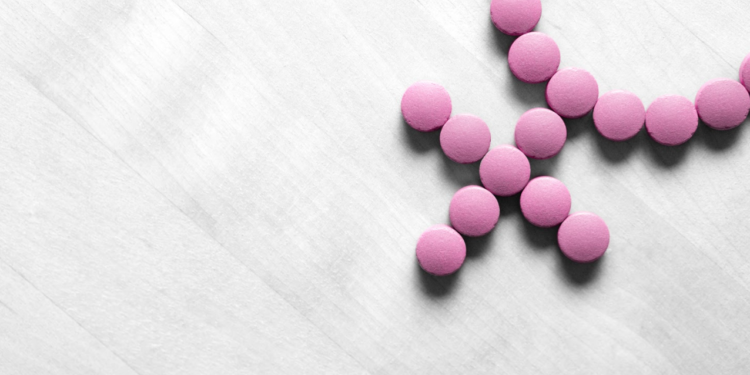- New data shows 97% of women are regularly experiencing symptoms, such as bloating, back pain, and fatigue, because of their menstrual cycle
- Despite this, only a quarter (25%) say they turn to healthcare professionals for information or advice, with 47% relying on websites, 22% asking their mothers and 30% asking friends
- Almost two thirds of women (64%) have experienced heavy periods, meaning they are more likely to suffer tiredness due to low iron levels, but almost half (46%) have never considered they might have low iron levels as a result
- 82% have just accepted suffering symptoms due to their menstrual cycle, with well over half (60%) feeling ‘it is just part of being a woman’
A survey of 2,400 women1, commissioned by the makers of Active Iron, leading experts in oral iron, shows half of women (51%) get tiredness and fatigue regularly due to their period, with 67% not realising that this could be due to their iron levels.
In addition, three-quarters of women (82%) aren’t aware of how much iron is lost because of their period. And worryingly, 82% have come to accept experiencing symptoms regularly because of their menstrual cycle as the norm.
Dr Aoibhe O’Driscoll of Blackrock Medical Centre, Women’s Health Clinic and a menopause specialist in Cork said:
“Periods, especially heavy periods, are a leading cause of iron loss worldwide. This means it is common for symptoms such as fatigue and tiredness to be experienced. The survey shows that many women are suffering in silence and, considering women will on average spend a combined total of 10 years menstruating, a huge portion of their life could be spent feeling less than their best, and this needs to change.”
Tiredness and fatigue are the symptoms of menstruation that women are most likely, by far, to put up with (46%). 60% say they sleep more to combat the tiredness from their cycle, while coffee (36%) and energy drinks (17%) are also popular options to help restore energy levels.
In terms of seeking advice on menstrual symptoms, while 47% of women will look online, only 40% have consulted their GP, 15% a gynaecologist, and 10% their pharmacist.
Iron supplementation is generally most helpful for women experiencing fatigue on account of menstruation, Dr Aoibhe O’Driscoll explains.
“On average, women will lose around 30-50ml of blood during their period, which will contain between 220mg and 250mg of iron. To put that in context, you would need to eat 1kg of spinach, over 12 servings, to generate the equivalent iron stores.”
University College Dublin School of Medicine Professor and Pharmacist Mark Ledwidge, who helped develop Active Iron, says there is a significant opportunity for pharmacy staff to provide support and advice and to empower women to help manage menstrual symptoms.
“There’s a significant opportunity for pharmacy staff to provide support and advice to empower women with periods to make choices that can sustain and build their iron stores, haemoglobin levels and energy. We can start by recognising the symptoms frequently being faced by women taking oral iron. We can be proactive in empowering women to manage this, whether it be via diet, lifestyle and/or supplement support.”
Of those who have considered that their iron levels may be impacted by their period, 45% have tried an iron supplement. However, 45% of these women admit that they have stopped taking it because of the side effects, which can include constipation, bloating and nausea.
Clinical Study
A new study has found that Active Iron is six times less likely to cause gut irritation compared to previous oral iron, resulting in a four-fold improvement in adherence to treatment. The product also showed a 94% increase in iron stores, with a resulting major improvement in energy levels.
The research reinforced the fact that Active Iron is an effective product that pharmacy staff and healthcare professionals can confidently recommend, which can increase iron levels and help alleviate some of the concerns that customers might have when it comes to side effects associated with iron supplements.
Professor Mark Ledwidge continues: “This study helped reveal the scale of the gut irritation problem, due to oral iron, amongst women. As well as gut discomfort, 63% of participants had insufficient iron stores. Gut side effects are the main reason women stop supplementing with iron, so it’s welcome news that Active Iron can reduce the gut discomfort while improving compliance, iron stores, haemoglobin levels and energy for these women”.
On the back of this new research, Active Iron has launched a ‘Better Days. Period’ campaign, which aims to empower women to take action to feel less tired and more themselves during their menstrual cycle. The marketing campaign spans PR, social media, digital activation, and influencers, and encourages women to seek advice from pharmacy teams.
Claire Lynch, Brand & Communications Lead for Active Iron, says: “The research shows a big opportunity for pharmacy staff to provide guidance to women who might have accepted feeling tired as the norm during their menstrual cycle. In fact, more than seven in ten women, 74%, expressed interest in taking an iron supplement to support energy levels, so we hope the new campaign encourages them to seek help from healthcare professionals and stop ‘putting up’ with menstrual symptoms such as tiredness and fatigue.”
30-days supply of Active Iron, produced by Solvotrin Therapeutics in Cork, has an RRP of €20.40.
To download a free period health questionnaire, visit activeiron.com/activeiron/healthcare-hub/.
To request more information on listing Active Iron in your pharmacy, contact info@activeiron.com.










